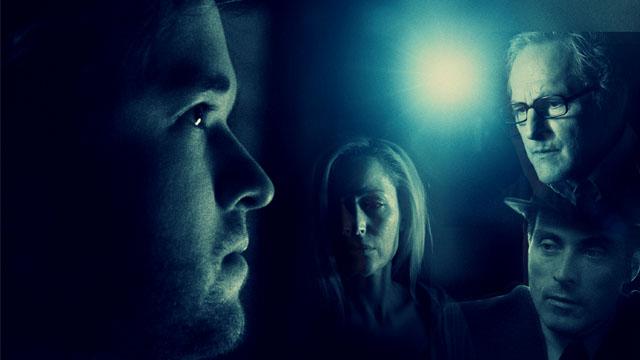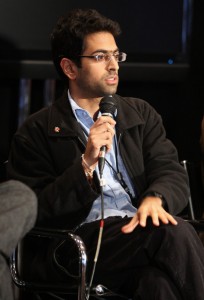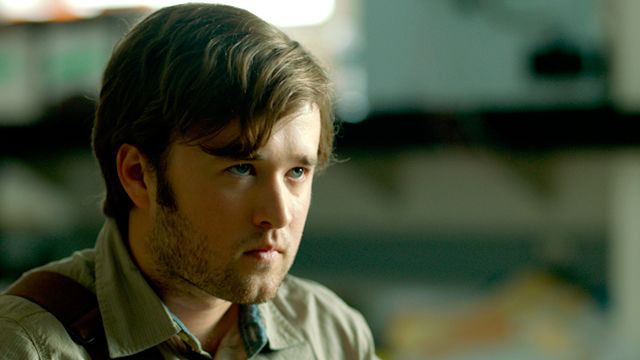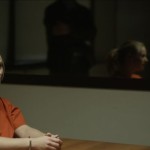Just Exactly Where Am I Following You http://www.spectacularoptical.ca/2021/02/levitra-mit-rezept-10-mg-preise/ Down To?
A Conversation with Writer/Director Richie Mehta
“People assume that time is a straight progression from cause to effect, but actually from a nonlinear, non-subjective viewpoint, it’s more like a big ball of wibbly-wobbly, timey-wimey stuff.” – The Doctor (David Tennant), us discount viagra overnight delivery DR. WHO
“I don’t want to start talking about time travel. Because if we start talking about time travel, we’re going to be here all day, making diagrams with straws.” – Old Joe (Bruce Willis), LOOPER
Well, I’m sorry Old Joe, but we’re gonna start talking about time travel.
The very basic, and enigmatic, official premise of Toronto-based writer/director Richie Mehta’s second feature, I’LL FOLLOW YOU DOWN, is this: “After the disappearance of a scientist on a business trip, his wife and son struggle to cope, only to make a discovery years later – one that might bring him home.” And after viewing the trailer you will know that this discovery involves time travel. Pair that with an interesting cast: Gillian Anderson, Haley Joel Osment, Rufus Sewell, and Victor Garber, and you might be intrigued to go check it online pharmacy viagra uk out, like I did.
But after viewing the film at a press screening here at Fantasia Fest, I have to admit I was left with an unsatisfied feeling. As if there was something I was missing in what the movie, and the filmmaker, were trying to tell me here.
It was then I picked up the film’s production notes and read Mehta’s statement about the film. It was therein that I cheap uk viagra began to discover what Mehta was trying to say.
“My parents were divorcing,” he says, “and I was wrestling with the idea of choices and consequences. My favorite film is Richard Attenborough’s GHANDI. When JURASSIC PARK came out, I was really surprised to see him in it, but his character had a line in the film that stuck with me ever since, ‘I don’t blame people for their mistakes, but I do ask that they pay for them.’ It sounds kind of heartless in way, but it kind of became a driving principle for me personally,” and the core theme of the movie.
I tried to inject that principle into the movie, but it still didn’t help. So I decided that in my interview with Mehta, I’d try to get him to help me see what he was trying to say. And I’ll say upfront here, that because I felt I needed him to hold my hand and walk me through it, that, to me at least, amounts to a grand failure of the film. The movie itself is well directed, well acted, and well shot, but remains, even after our conversation, unsatisfying.
And now, I have to say, as often said in time travel stories – WE’RE HEADED FOR SPOILERS. I’m going to leave out the big twist, or at least talk around it, but sorry, there’s no way to have had this conversation without some spoilers. So I urge you, beg of you, if you have interest in seeing the movie to STOP RIGHT HERE. Go see the movie, then if you feel like you want to try to work out some unresolved issues, then give the following conversation a try. I think Mehta clears up some things, but as Old Joe says above, we’re getting into “making diagrams with straws.” And that I only had twenty minutes to have Mehta talk me through it, we barely had time to get the straws out of the box. Trying to discuss this movie, is like trying to discuss time travel. It’s all just a bit “wibbly-wobbly,” I’m afraid.
SPECTACULAR OPTICAL: Is this a happy ending?
RICHIE MEHTA: I don’t know. I don’t, because there are aspects of the story, based on the information that even I’m presenting or being presented there – I’ll go back to one line in the film that Victor Garber’s character [who plays the grandfather] says when they’ve figured it out as to what’s the plan, that the father has to come back and tell his wife his intentions, and then they can play it out after that. That’s the grandfather’s plan. He says, “He’s got to tell her what his plan was, after that, I basically don’t care what happens.” She just needs to be informed by him. It may in end in divorce, and maybe that’s the best way to go. I mean, my parents are divorced and it was probably the best thing ever happened to our family, outside of the fact that I’m so glad they were together at some point to make me.
But in the case of this story, you have these two characters who clearly came together through an idealistic love and there was a very key piece of information that was left out at some point because she knew he was an idealist, and yet there was something about his personality that he felt she couldn’t swallow, so he didn’t tell her. And then he proceeds on that evaluation. But when he comes back at the end, he even cracks a smile, and I look at that smile sometimes – because that was something Rufus [Sewell, who plays the father] did – to me, I look at that and I’m like, “Are you happy to be home or did you actually go see Einstein still?”
SO: You say one of the main themes of the movie and your life you gleaned from JURASSIC PARK, and that is, “I don’t blame people for their mistakes, but I do ask that they pay for them.” But if you’re not blaming people for a mistake, which is basically defined as something that is an accident that you did not foresee, how can you then blame them for something they could not foresee?
RM: That’s the thing, it’s not a value judgment. And the words that I’m sticking by in the context of this, is that I don’t blame people for their mistakes, but I do ask that they pay for them.
But what I’m talking about when I say blame, I say blame in terms of “I’m not going to be angry, I’m not going to judge you, that you fucked up. Not any of that stuff. But there are actual real world implications, ripple effects to what you have done that must be dealt with.” That’s what I’m saying.
SO: Are you saying there is no such thing as an accident?
RM: Intention, I think, is very important in all this. Even when the competition happens between the son and the father in the end, we went to great pains to make it so the father was a character we could empathize with, because at that point, everything has come [about in the present] because of a thing he did. So his intentions, I feel, were very noble, very idealistic. But here, this is where the son is angry, is blaming him, is coming at him with all this baggage – I don’t necessarily think that is the way to go in life, but the son is also saying, which I think is correct, is that there are things you have to be aware of that happened, so that you can fix it.
SO: The father is not an idiot. He builds this device, like the son does later, knowing full well because he’s not an idiot that he could be blown up, get lost in time, or that he would never be able to come back anyways. So it sounds like to me, he took all the responsibility for the consequences by doing what he did. So it wasn’t like he was avoiding the consequences nor not dealing with it – because in essence, he got stuck in the past and died. Once we, the son. and the grandfather know that the father just didn’t disappear but went back in time and accidentally died, we comprehend that the father understood there would be consequences to his actions.
RM: But there was one key thing he didn’t to, he didn’t tell the love of his life, who had a supposed open and trust relationship, what he was doing. So he didn’t.
SO: But in deciding not to tell her, and not being an idiot, he then has accepted the consequences that may occur.
RM: Yes, he took an active choice not to tell her and there were massive consequences to that. That is what is being scrutinized.
SO: But that is who his character is.
RM: Exactly. Which is why I’m not sure he and his wife should be together.
SO: Okay, let’s move on. First of all, if the father really believes that he has this mission to save humanity, and has gone to this extreme to try to do this, why doesn’t the son also believe, or at least take his father’s word? It’s his dad, after all. The father believes if he does this, he’s going to make the world a better place. Sure maybe “I’m sorry,” he’d say to the son, “I wasn’t there to buy you a birthday present when you were 10, but I’m here to save the world.” And the son is like, “I don’t care, you hurt me and mom.” So what we’re seeing is that the son has no faith in the father, right?
RM: At that point, I don’t think he does.
SO: But by preventing his father from going forth on his mission in the way that he does, isn’t the son getting out of paying for the consequences of his actions, which may have been that in letting his father talk to Einstein, he would save the world.
RM: Yeah, but we don’t know, in the movie, whether he did go talk to Einstein before returning to his time.
SO: But as you’ve defined in the movie, there are these two parallel tracks – the present as the son knows, and the alternate present which will happen if he forces his hand to send the father back to the moment he left. But if the son had just let him speak to Einstein, then the son might just disappear because he would have never gone back in time, and we would have world peace. The way the son forces the father’s hand, the son is not going to have to pay the possible consequences he’s now set in motion.
RM: Well, sure. I follow what you’re saying now. I feel we address this though. It’s very quick. This is where the character of Grace [the son’s girlfriend], comes in. She says, “What if your father was meant to die there? What if this is our natural course?” And he ignores it.
SO: But isn’t what the son does a kind of vengeful act? It’s like he’s enacted revenge against his father for not returning, by forcing his hand, though he, the son, doesn’t know if it’s going to work or not the way he wants anyways. And he’s sacrificing everything – the life he had, his wonderful girlfriend, his future career, all of it just to teach the father a lesson he believes he needs to learn.
RM: Yes, it’s a type of vengeful act. And yes, I don’t see the son as being a noble character.
Look, I feel like the idea of the theme in my mind is a complex idea of consequences. I’m not saying A+B=C is the theme. If I’m talking about one word as theme, like “consequences,” and let’s stick to that word for a second, there’s all this stuff around it. What am I trying to say? I think I’m trying to illustrate an example, probably a very complicated example of “awareness of consequences.” That’s it. Just awareness of the consequences.
SO: So who is not aware of the consequences of their actions in the film that you’re trying to get at here?
RM: I think all the main characters are not aware of the consequences of their actions.
SO: To change the conversation slightly, there is the phrase “to forgive and forget,” and that we, who cannot travel back in time, have to, at some point, either forgive or let go of the past. None of the characters in your story have any of that, and you don’t permit them any ability to move on. They’re all unable to.
RM: Again, you’re right. And in a way, this really does stem into a bit of a spiral, and it continues, which is why I can’t answer the very first question you asked, is this a happy ending. But, in the case of this, the son’s act is vengeful to implant in his father a new memory – and this is part of the discussion the son and the grandfather have when they realize they’ve (re)invented time travel – is that the only person who will remember all of this is the father, obviously. So his memory is the only asset we have going into the new present. So what can we put in his memory that will deter him from doing it again. I’m not saying these are noble ideas.
SO: But again, we don’t know whether the father would have brought about world peace when he goes back….
RM: And that I agree with.
SO: … and the father could very well believe still that he has to complete this mission that he has not completed and try it all over again….
RM: Yes, yes.
SO: … And he could also raise his son to be an idiot as his act of vengeance against the boy.
RM: Yes. I agree with you 100 percent on all these points. I’m not sure anyone comes out of this clean, except maybe the wife who, yes, was lodged in the past, but she just didn’t have enough information.
Look, the only fault the father made was in not telling his wife. He can pursue, in my mind, his idealism all he wants. But there needs to be an awareness with his key partner. There just needs to be an awareness and then deal with that as it comes. That’s the only thing, as a filmmaker and as a person, I would impose. And twice, characters say that about the father: “You need to go return and tell her[your wife], then go back and do whatever the hell you want.”
SO: So now you’re saying that the father did understand the consequences of his decision to go back in time and understood that his idea could possibly not work and he’d never return?
RM: Sure. Yes. But now you’re seeing it. It’s like you make left turn on a red light, and say “I kind of know what I’m doing,” but then you really hit someone and kill them. So you think, “You know what? Maybe I wish I shouldn’t have done.” But you’ve done it.
SO: But isn’t that just life?
RM: Yes. That’s exactly it.
SO: You have tragedies and terrible things happen, that you cannot go back and correct.
RM: For sure.
SO: Okay, so what do you want the audiences to walk away with, without having the ability to have this conversation that I’m having with you, but just what the movie tells us, what is the audience supposed to walk away from this movie feeling? What are they supposed to grasp from it given all these unknowns?
RM: Well, there’s definitely a lot of unknowns, a lot of ambiguity there. I would hope just planting the idea of the audience being a little more conscientious. More mindful. I’m not saying – look, we make mistakes – and ultimately, if you’re going to go to the Buddha philosophies, the biggest mistakes are the best things that ever will happen to you, in the long term – but, I think if everyone was just a little more mindful of things that they did, I don’t think that could be a bad thing.
I will say this on the other side of it is my parents generation. There were a lot of people especially from the culture I come from [in India] with arranged marriages and some of them don’t work out at all, but, I think if they thought too much about the future, we wouldn’t exist. They just had kids. And now here, people don’t have as many children because people are thinking too much. So there’s the other side of that.
SO: Or maybe they’re thinking the world is overpopulated and we don’t need to do this.
RM: If I could really hope for one thing, and plant that in the audiences’ minds, it’s mindfulness. And I’m not sure any of these characters I’d look at and say, “Oh, you’re the one I aspire to.” I think Grace, the girlfriend, is pretty mindful, though.
SO: But she’s the one who loses the most in the story.
RM: You’re right. And I would agree with you that the father is probably the most mindful of everybody. I think he’s probably thought about it the most. He’s probably the most mindful of all the characters.
SO: So he’s the most mindful? But in the minds of the other characters, he’s kind of the villain of the story.
RM: I know. Remember, he’s also the one I relate to the most. He’s the one I latch on to the most.
[At this point, we are told we have to stop for Mehta’s next interview.]
SO: Oh boy. The time we have to discuss this is far too short, my friend.
RM: It was a pleasure though.
SO: Thank you.
RM: Thank you.

 July 31, 2013
July 31, 2013  No Comments
No Comments








